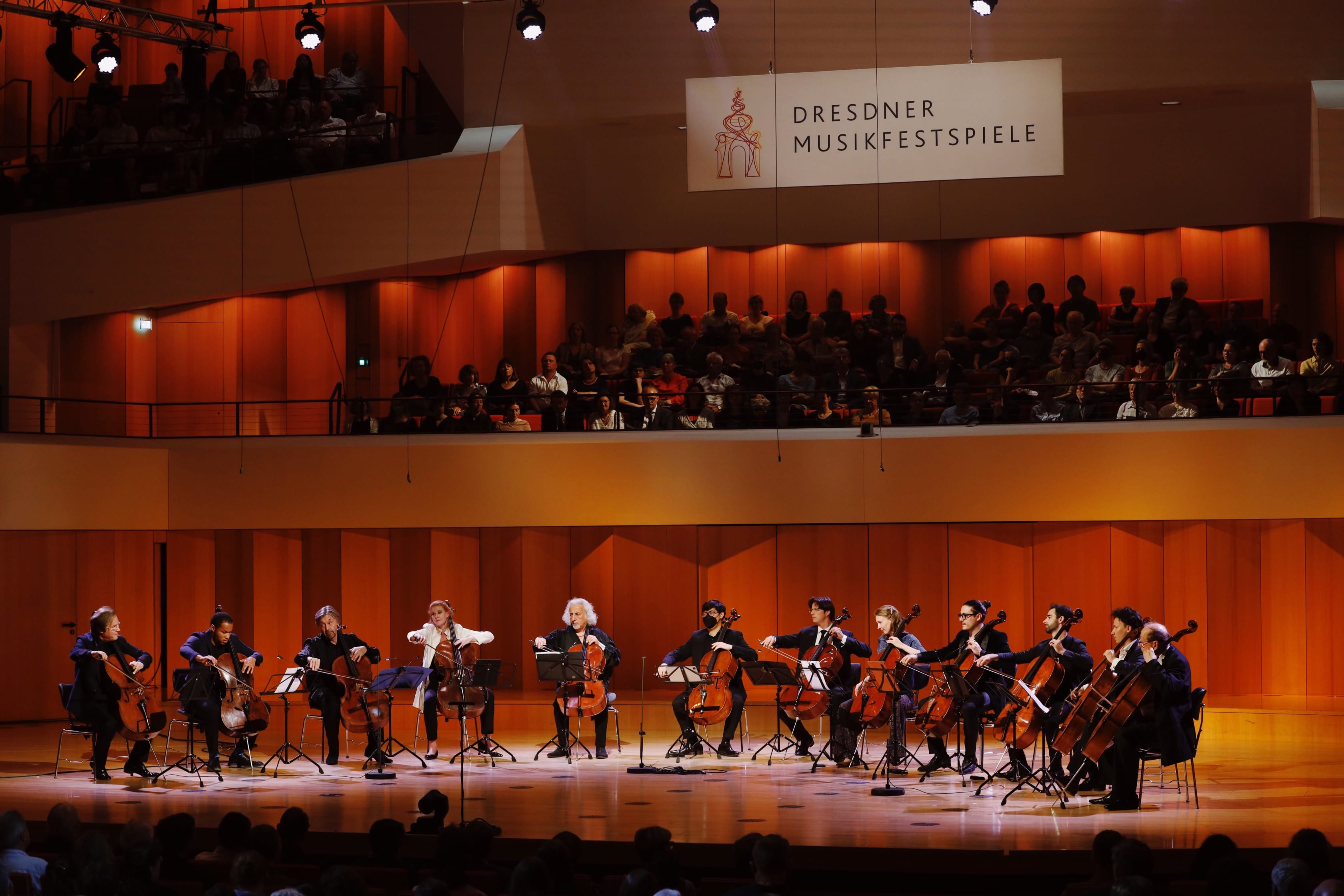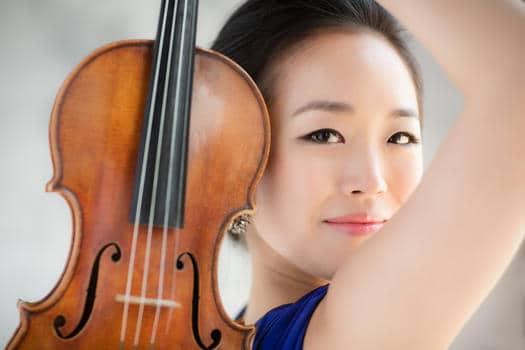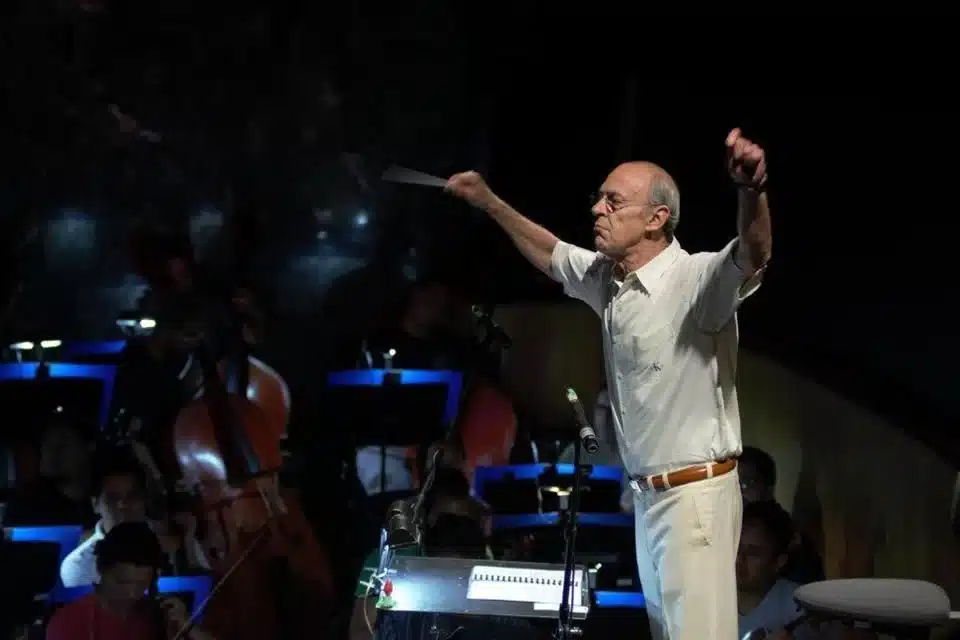Tears flow from bows at the Long Night of the Cellos
NewsSpecial report from Richard Bratby in Dresden:
“Cellists are sociable and love to get together” says Jan Vogler, director of the Dresden Music Festival and cellist. So why not make something of it? Vogler has given his address book a workout and invited as many cello A-listers as possible to Dresden for Cellomania: a “festival within the festival”, climaxing with the unnervingly (but accurately) named Long Night of the Cellos, a 4.5 hour marathon concert starring 17 of the finest cellists on the planet.
“It’s shorter than a Wagner opera” joked Vogler, optimistically, and the concept this year was simple: starting at 7pm in Dresden’s Kulturpalast, each cellist got to play a party piece – either unaccompanied, or with piano (the tireless, unfailingly sensitive playing of pianist Julien Quentin in repertoire ranging from Schumann to Myroslav Skoryk, was an achievement in its own right). From time to time, they’d come together en masse to tackle some of those ensemble pieces that cellists love but concert audiences tend not to encounter: Popper’s Requiem, the first Villa-Lobos Bachianas Brasileiras and toothsome transcriptions of Grieg, Verdi and a Carlos Gardel tango.
So they began with Klengel’s Hymnus: and the sheer tonal splendour of an ensemble that included Vogler, Mischa Maisky, Miklós Perényi and Marie-Elisabeth Hecker was pretty much what you’d expect. Less predictable was the delicacy of the playing. The music emerged pianissimo from the silence like the first glow of dawn; lines curved and swelled but the textures never grew muddy. An exquisite start; as repertoire, however, it was indicative of the way cellists think when left to their own devices. There was a preponderance of slow, lyrical music. Poetic emoting in the tenor register was the default setting and (one of several propositions that Vogler seemed eager to test to breaking point) it is possible to have too much of a good thing.
But it was a good thing, nonetheless. Harriet Krijgh found a measured eloquence in a pair of Schumann transcriptions and Sheku Kanneh-Mason gave a masterclass in quiet command in three of Edmund Finnis’s unaccompanied Preludes. Pablo Ferrández played Rachmaninoff’s Vocalise and Hecker played Fauré’s Après un Rêve – recital warhorses, delivered with rare finesse. Ivan Monighetti sculpted three Weinberg Preludes into an impassioned oration (though his subsequent, extended deconstruction of a Bach sarabande was probably a step too far for 11pm). Above all (and possibly the single greatest performance of the night), Pieter Wispelwey played Ravel’s Kaddish: a sound of such luminescent richness, so charged with feeling that even the quietest phrases seemed to flood the entire hall. Wispelwey gives the impression of creating expressive shadow even within light; the only valid response was quiet awe.
Still, it was curious that so few of the players opted for the virtuoso route, and striking how enthusiastically the (near-capacity) audience responded to those who did. Edgar Moreau whirred brilliantly through his own transcription of Monti’s Csárdás; Johannes Moser, brandishing his electro-cello and dressed like a member of Kraftwerk, silenced audience giggles to weave fluorescent clouds of counterpoint in Ellen Reid’s Somewhere There is Something Else. Daniel Müller-Schott (who seemed to be going for more of a Reservoir Dogs look) powered through two movements from George Crumb’s Solo Sonata with heavy-metal intensity. Nicolas Altstaedt attacked Dutilleux’s Trois strophes sur le nom de Sacher like a one-man concerto, and the lunar shimmer of his sul ponticello came close to matching Wispelwey for sheer, visceral impact. Maisky was just as daring – and even more raw – in Fallas’s Ritual Fire Dance.
By now it was past midnight, the published running-time having failed to account for the time required to reset the stage after each of the 27 individual items. The platform team received (and deserved) a round of applause from the audience, who seemed distinctly perky as we headed for the early hours. The roars of laughter from backstage, meanwhile, were worthy of the Eurovision green room, with added C-string rumbling. After five and a quarter hours, 16 cellists finally took the stage for the most exuberant, and warmest imaginable performance of Pablo Casals’s Sardana; a gesture of joy and friendship, now and forever, from the greatest cellist who ever lived. I don’t think it was just exhaustion that brought a brief trace of a tear to my cold critic’s eye; but as the saying goes, you probably had to be there. It’s a cellist thing. And then some.
Richard Bratby






Germans certain are something for themselves. These kind of concerts are outdated in most of the world. But if the audience loves it, why not. Congrats!
That’s pretty cool. But 17 cellists without another gig that evening?
Jan Vogler is not a particularly respected figure in the classical music scene. His cello playing is far below the level of other well-known soloists and many musicians make fun of him because of it, but then play with him anyway because he is a great networker and, as artistic director of several festivals, ensures engagements.
Wow… that sounds like a rather unnecessary comment to make, coming off a bit judgmental and bitter. There’s enough space for everyone to exist in the world/music world, and to sing their “song”, even if they aren’t “the best”. Let’s build each other up.
Were you familiar with Isaac Stern?
What!!!!!No Hauser and Luka Sulic. ????
How can I hear them? I’m intrigued.